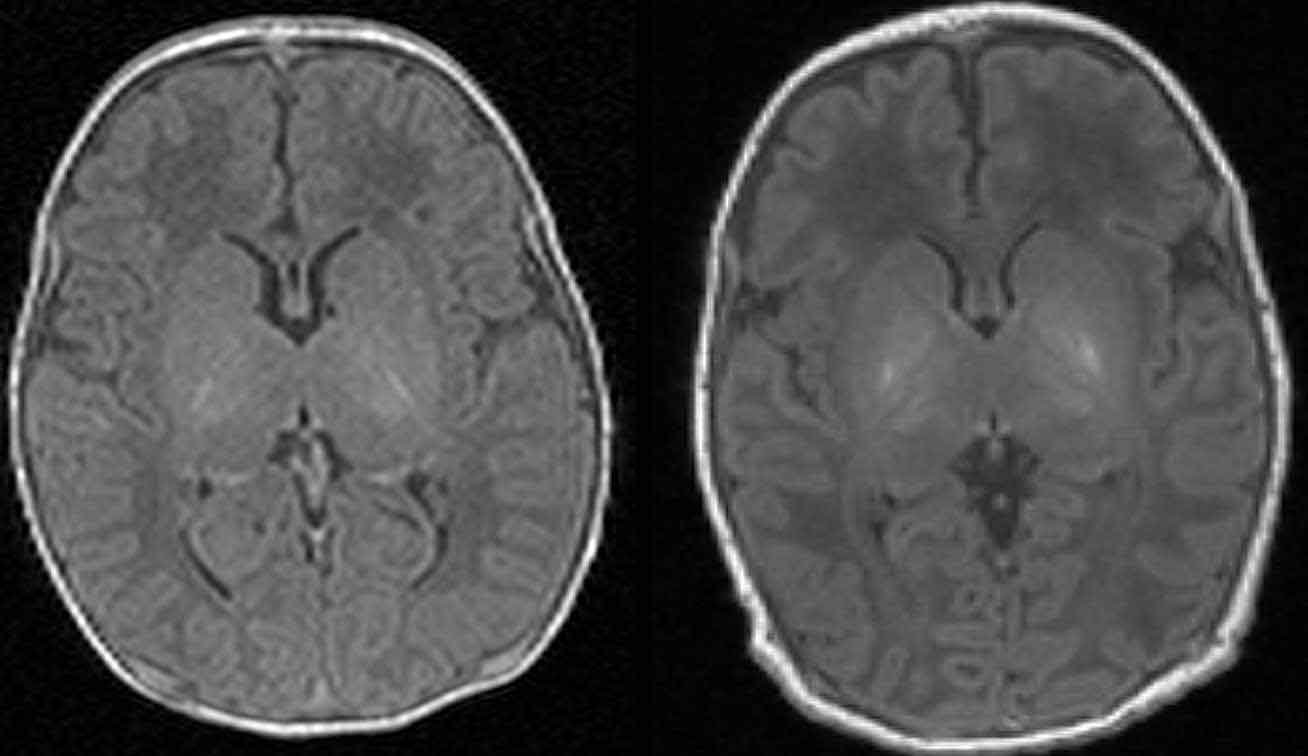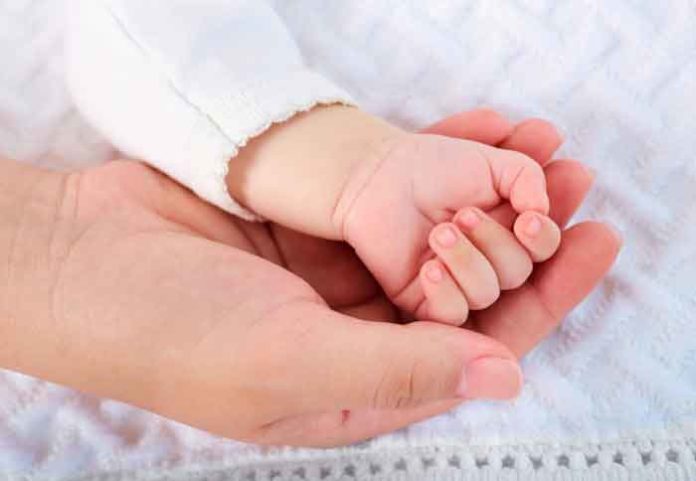Brain damage affects around one in 300 births in the UK and is usually caused by oxygen deprivation. However, currently, doctors are unable to accurately assess the extent of a newborn baby’s brain damage.
In a new study by the Imperial College London, scientists tested over 200 children at seven hospitals over the UK and the USA, specialists found the brain scan, called magnetic resonance (MR) spectroscopy, anticipated damage with 98 percent accuracy.
Using MR spectroscopy, scientists assessed the health of brain cells in an area called the thalamus, which facilitates various capacities including movement, and is typically most damaged by oxygen deprivation.
The scan particularly tests for a compound called N-acetylaspartate – high levels of which are found in healthy brain cells, called neurons. A level of 9-10 is found in healthy neurons, through a level of 3-4 demonstrates harm.
During the trial, the scan was performed at the same time as the routine MRI scan when a baby was between four and 14 days old.

Dr. Sudhin Thayyil, study author and Director of the Centre for Perinatal Neuroscience in Imperial’s Department of Medicine said: “At the moment parents have an incredibly anxious two-year wait before they can be reliably informed if their child has any long-lasting brain damage.”
“But our trial – the largest of its kind – suggests this additional test, which will require just 15 minutes extra in an MRI scan, could give parents an answer when their child is just a couple of weeks old. This will help them plan for the future, and get the care and resources in place to support their child’s long-term development.”
During the trial, all of the babies received cooling therapy immediately after birth. This is now a routine treatment for newborns with suspected brain damage and involves placing a baby on a special mat that reduces their body temperature by four degrees. Evidence has shown that cooling the body can help reduce the extent of brain damage and reduce the risk of long-term disabilities.
After that, the babies underwent a brain scan and detailed developmental assessment at two years of age. The results suggested the MR spectroscopy at two weeks accurately predicted the level of toddler’s development at two years old.
Dr. Thayyil added that the scan may also help scientists develop new treatments to tackle brain injury in babies: “At the moment when doctors are trialing a new therapy that may boost development of children with brain damage, they must wait two years until they can assess whether the treatment is working. They also need to study a large number of babies. But with this new scan, they’ll be able to assess this almost immediately, with a much smaller number of infants.”
“The next step is to roll out the scan in more hospitals in the UK as a clinical tool. Most NHS hospitals already have the facilities and software to perform this scan, it’s just a case of increasing awareness and training.”
Christine Reklaitis, a mother who took part in the trial shared her review. She said, “I had a healthy pregnancy, but during labour, my midwife struggled to find Georgiana’s heartbeat, and she was born shortly afterward via emergency c-section.”
“I remember the terror when we didn’t hear a cry after she was born, but thankfully she was breathing and was whisked away to intensive care, and placed in an incubator. The doctors told us they were going to cool her down, which we thought sounded unusual, but were told it would reduce her risk of brain damage.”
“We were asked to take part in a trial and quickly agreed. We felt our daughter’s treatment benefitted from past studies, so we wanted to help develop future treatments.”
“After the first scan we were told the levels of a compound in her brain cells were low, but were incredibly relieved when a scan a few weeks later showed the levels had increased to normal levels.”
“We are so pleased we took part in this trial – and hope the research helps other families.”
The story is published in Lancet Neurology.
